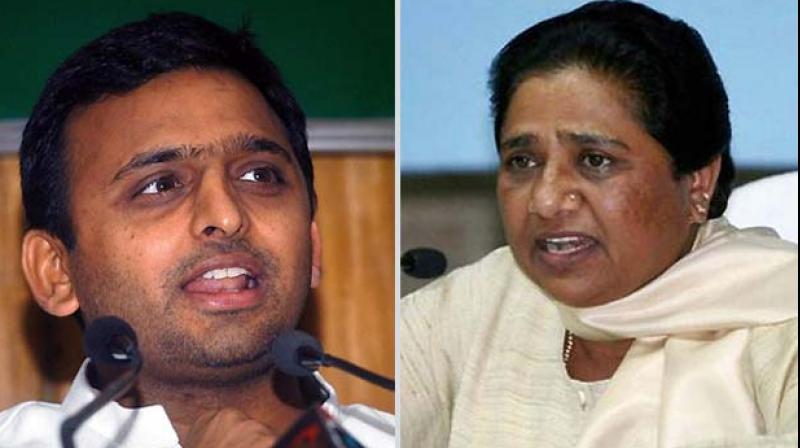BSP-SP deal' in UP: Many wait and watch

The Bahujan Samaj Party in Uttar Pradesh has surprised observers by lending its support to the candidates of the Samajwadi Party for the parliamentary byelections for Gorakhpur and Phulpur to be held on March 11, bringing about an association of some kind between these parties after a lapse of 23 years. If the combination works and the SP can wrest even one of these from the BJP, it could be a straw in the wind. Ties between two important regional players of electorally the most significant state in the country — due to the highest number of Lok Sabha seats it has among states — were badly damaged in 1995 when SP
supporters attacked a guesthouse in which BSP leader Mayawati was meeting her MLAs. In view of the old animosity it will be interesting to see if the BSP’s natural voters agree to transfer their votes to the SP candidates.
The Gorakhpur and Phulpur MPs have respectively become the chief minister and deputy CM of the state. On that count alone, much value attaches to these byelections.
In 2014, the BJP won 71 of UP’s 80 Lok Sabha seats, riding on the Narendra Modi wave against the incumbent UPA-2 government. In March 2017, the BJP won the Assembly elections in the state in as bulldozing a manner, mainly on the strength of non-Yadav OBC as well as upper caste and a section of dalit votes disenchanted with the BSP supremo’s style. The March 11 bypolls will show to what extent this equation remains valid a year after BJP rule in the state. If the Muslim vote is unidirectional in favour of SP candidates, their chances will naturally improve.
The Congress is in the fray, but probably with view to gauge the extent of its support, specially among upper caste voters, when it fights independently in UP in these straitened times. BSP chief Mayawati has gone to some lengths to assert that her party’s support to the SP shouldn’t be seen as the start of a move towards an alliance for the next Lok Sabha polls. She was also at pains to point to the transactional nature of the coming together of these regional parties, whose social bases don’t naturally complement each other and are often antagonistic.
The BSP chief has said that the deal is limited to the SP transferring the votes of its legislators to the BSP for a Rajya Sabha seat from the state, and the BSP giving the SP its extra votes for the UP Legislative Council. This is clear enough.
Nevertheless, in case the SP can defeat the BJP in even one of the two seats, a clamour may begin for the two to come together for the Lok Sabha elections. But the larger picture will be the BJP’s vulnerability in Uttar Pradesh.

